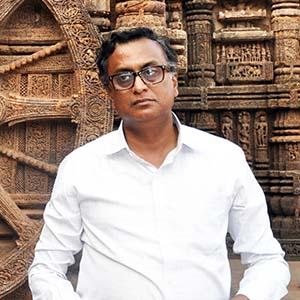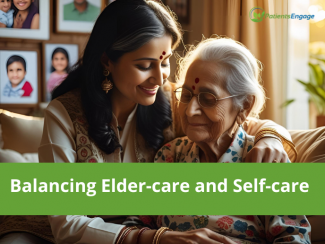
From popping pills for Parkinson's Disease every 2 hours and dealing with various side effects of these pills, Hari has turned his life around and chose to focus on his passions for travel and spreading awareness on PD. Read on.
I was diagnosed with Parkinson's Disease in 2008. Currently after the Deep Brain Stimulation surgery, I seem to have recovered almost 95%. Earlier I used to pop pills every two hours. My consumption of medicines has now come down to at the most one per day.
What were the early symptoms?
I started with tremors in my left leg which quickly moved to my left hand.
Is there a history of Parkinson’s disease in your family?
I cannot say really. I understand that my grandmother had twitching in her fingers. She died very young. However, two of her sisters had significant PD before they passed away. One uncle (my father’s cousin brother) has PD.
Please describe your experience of managing Parkinson’s disease.
My overall experience has been that of despair and a lack of self belief followed by a resurgence of hope and a belief that God has perhaps chosen me as a messenger for furthering the cause of spreading awareness on PD.
Did you experience side-effects of the medicines you were put on?
Yes, quite significant side-effects, in fact. I believe some agonists (mimic drugs) do have side effects, especially that of OCD. Some of the OCDs that have been listed include excessive gambling, shopping and the need for sex.
Also, irregular sleep patterns and a feeling of drowsiness at all times.
Tell us about the DBS (Deep Brain Stimulation) surgery that you decided to go through with. What made you decide on it?
I had attended a couple of seminars where DBS Surgery and its benefits for some PD patients were discussed. One needs to be evaluated for the same by one’s neurologist. My doctor had told me for some time that they had evaluated my case and had not found me suitable. Once the symptoms became difficult to manage, they decided on the DBS.
Was going through with the operation a turning point for you? If so, how?
Yes, it was. Like I mentioned, my consumption of drugs came down to almost nil and with that the side effects. I started sleeping better. I started becoming enthusiastic in life and now I look forward to the mornings. I decided to quit my job and concentrate on:
- Improving my lifestyle
- Give motivational lectures across India and making people aware of PD and DBS.
- Travel-my major passion.
This surgery, which has obviously helped you immensely, is it a onetime solution, or is it something like a periodical treatment?
I believe that I should be okay for the next ten years or so with the DBS. There is a lot of money going in to PD research globally. There is certainly hope for the future.
What is your prognosis now?
None for the moment. I believe a healthy life style coupled with brain exercises like Sudoku and playing Bridge should help me get through the ten-year period.
Can all Parkinson’s patients avail this surgery, or are there certain criteria which need to be fulfilled?
I understand there is a criterion. The neurologist is the best person to advise one on on this.
Dr. Pettarusp Wadia sheds light on whether Deep Brain Stimulation is recommended for all patients with Parkinson's.
How has your family supported you in all this?
They were a pillar of strength. If it was not for their support, I might not have undergone the DBS. The ability to treat me like a patient and still make it appear to me that I am not one is a challenging task.
Did you have to make some changes to your lifestyle because of your condition?
Yes. I quit my job, which removed the major stress factor. Also, it gave me more time for a healthier lifestyle.
What were some of the challenges you faced and what is your advice to patients who face similar challenges?
My biggest challenge was my OCD for sex. The caregiver must monitor the drugs being given for such OCDs and report to the neurologist about any changes in behavioural patterns. It is only then that the neurologist can make the necessary changes in the drugs being prescribed.
It is important for a patient, his caregiver and the immediate circle of family and friends to first accept that the patient is suffering from that condition. A state of denial has no meaning. The society must be made aware of the causes of the disease and not have any kind of stigma attached to it.
Also, it is important that family and friends should not keep confusing the caregiver by telling him/her about unscientific alternate therapies, and also about other doctors and their methods. Keeping faith in your own doctor and his treatment is very important.
Also, there should be no diversion from the fact that the cause of the disease is due to a lack of Dopamine. Please do not give it names like ‘MATA AA GAYI” and other local humbug. This only adds to the stigma.
How difficult has it been emotionally to cope with your condition?
Not much, thanks to the excellent family support that I had, especially that of my caregiver, my wife, Mamta.
What was the hardest part of the treatment? What kept you going? How has this changed your life perspectives and ambitions.
Taking my medications in a disciplined manner as my job involved a lot of touring.
Making sure my finances were just okay for a lifetime, so that I could retire from a stressful life.






